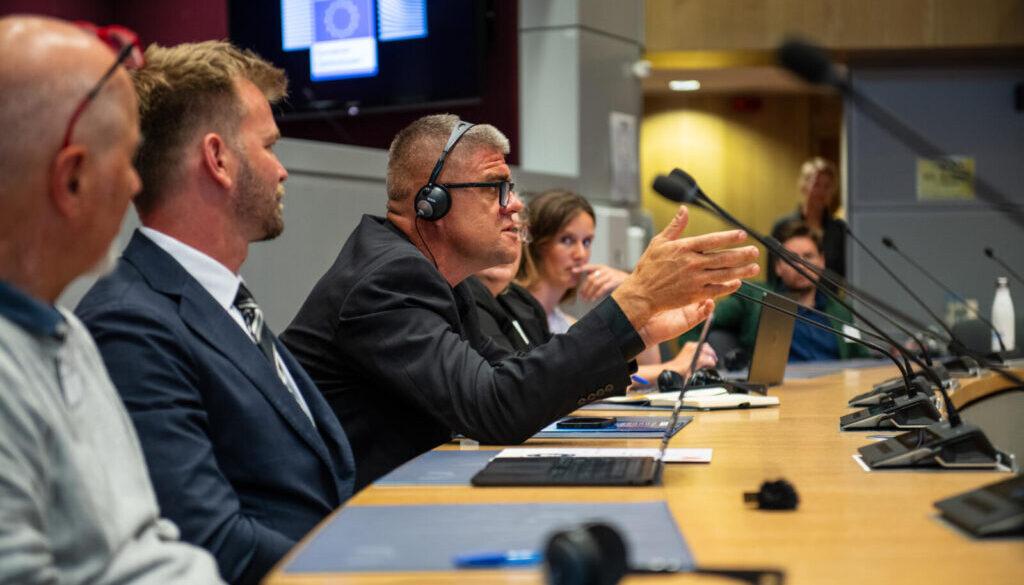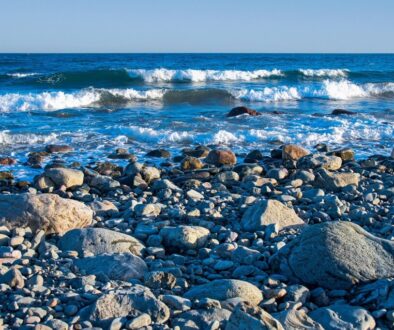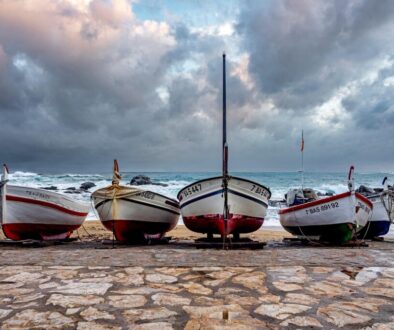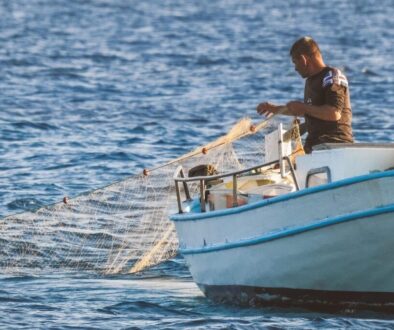Vijesti o poštenom ribarstvu, zdravim morima i živahnim ribarskim zajednicama
Arktički forum EU-a: Autohtono stanovništvo i mali ribari suočavaju se sa sličnim izazovima i dijele zajedničke vrijednosti
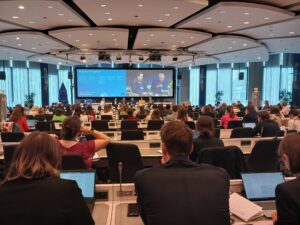 Klimatske promjene utječu na Arktik dramatičnije nego na druge regije; zagrijava se 3-4 puta brže od planeta u cjelini. To nepovratno utječe na egzistenciju i prehrambene sustave lokalnih zajednica i autohtonog stanovništva. U međuvremenu, klimatske promjene otvaraju mogućnosti za druge, privlačeći vanjske aktere u regiju i povećavajući konkurenciju za prostor i resurse. Europska komisija (Glavna uprava za morske resurse i Služba za vanjsko djelovanje EU-a) organizirala je “Arktički forum EU-a i dijalog autohtonih naroda”, dvodnevni događaj u Bruxellesu. Ključne teme o kojima se raspravljalo uključivale su prava i teritorije autohtonih naroda, vrijednost tradicionalnog znanja i potencijalne sinergije sa znanstvenim istraživanjima te rizik od generacijske nepovezanosti. Sastanak je obuhvatio pitanja relevantna za sva arktička područja, od skandinavskih zemalja EU do Norveške, Aljaske i Kanade. Među panelistima su bili predstavnici autohtonih zajednica (inuitske i saami zajednice), uz znanstvenike, istraživače i predstavnike lokalnih gradova. U raspravama je istaknuto da se male ribarske zajednice u drugim regijama EU suočavaju sa sličnim izazovima. Posebna pozornost posvećena je važnom radu koji obavlja članica LIFE-a, zadruga Snowchange, na ublažavanju i prilagodbi klimatskim promjenama te na obrani tradicionalnih prava, sredstava za život i kultura.
Klimatske promjene utječu na Arktik dramatičnije nego na druge regije; zagrijava se 3-4 puta brže od planeta u cjelini. To nepovratno utječe na egzistenciju i prehrambene sustave lokalnih zajednica i autohtonog stanovništva. U međuvremenu, klimatske promjene otvaraju mogućnosti za druge, privlačeći vanjske aktere u regiju i povećavajući konkurenciju za prostor i resurse. Europska komisija (Glavna uprava za morske resurse i Služba za vanjsko djelovanje EU-a) organizirala je “Arktički forum EU-a i dijalog autohtonih naroda”, dvodnevni događaj u Bruxellesu. Ključne teme o kojima se raspravljalo uključivale su prava i teritorije autohtonih naroda, vrijednost tradicionalnog znanja i potencijalne sinergije sa znanstvenim istraživanjima te rizik od generacijske nepovezanosti. Sastanak je obuhvatio pitanja relevantna za sva arktička područja, od skandinavskih zemalja EU do Norveške, Aljaske i Kanade. Među panelistima su bili predstavnici autohtonih zajednica (inuitske i saami zajednice), uz znanstvenike, istraživače i predstavnike lokalnih gradova. U raspravama je istaknuto da se male ribarske zajednice u drugim regijama EU suočavaju sa sličnim izazovima. Posebna pozornost posvećena je važnom radu koji obavlja članica LIFE-a, zadruga Snowchange, na ublažavanju i prilagodbi klimatskim promjenama te na obrani tradicionalnih prava, sredstava za život i kultura.
Učinimo ribolov pravednim: Mali ribari, Patagonia i nevladine organizacije pozivaju Europsku komisiju revidirati izopačene subvencije i preraspodijeliti ribolovne mogućnosti.
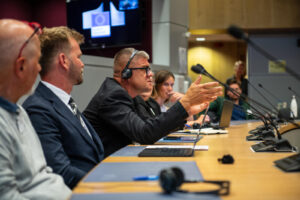
Mali ribari iz Španjolske, Danske, Hrvatske i Italije pridružili su se programu LIFE, nevladinim organizacijama i tvrtki za aktivnosti na otvorenom Patagonia., dostaviti pismo Virginijusu Sinkevičiusu, povjereniku za okoliš, oceane i ribarstvo. Zovu na ribolov. mogućnosti koje će se preraspodijeliti korištenjem socijalnih i ekoloških kriterija kako je propisano člankom 17. ZRP-a te promijeniti način dodjele subvencija. Tijekom četiri desetljeća subvencije i kvote nagrađivale su interese velikog ribolova, stvarajući iskrivljeno more koje pogoduje iskorištavanju velikih količina ribe i ribolovu s velikim utjecajem. Ribolov s malim utjecajem mogao bi biti dio rješenja ako se provedu povoljne politike. Evaluacija ZRP-a i novi mandat Europske komisije pružaju priliku za to; za pregled i reviziju provedbe članka 17. i načina dodjele subvencija.
Zamišljanje alternativne budućnosti ribarstva: projekt Rethinking Fisheries sastaje se u Danskoj
Godine 2023., LIFE se pridružio organizaciji Seas At Risk i široj skupini dionika kako bi pokrenuo proces razvoja i promicanja alternativne vizije za budućnost ribarstva temeljene na pravednom prijelazu na ribarstvo s malim utjecajem i pošteno ribarstvo. Vjerujemo da se ribarstvo nalazi na raskrižju i da ako želi opstati i napredovati u budućnosti, potrebni su alternativni pristupi upravljanju ribarstvom, ekonomiji i društvenoj organizaciji. Održan je treći sastanak dionika tijekom dva dana u Svendborgu, 28. i 29. svibnja, a uključivao je ribare, trgovce, aktiviste i istraživači. Planirano je da će rad na preispitivanju ribarstva biti dovršen nakon ljetne pauze, s pokretanjem šire kampanje u jesen.
Belgijsko predsjedništvo i Vijeće za poljoprivredu i ribarstvo usporavaju obnovu prirode
Zakon o obnovi prirode trebao je biti ključni element Strategije EU-a za bioraznolikost, kako bi se obnovili ekosustavi za ljude i planet. Međutim, nakon što je belgijski premijer izjavio da je to “loš zakon” i da ga je potrebno “vratiti na početak”, Belgijsko predsjedništvo EU odlučilo je odgoditi glasovanje o njegovom usvajanju na neodređeno vrijeme. uslijedio je otpor lobija poljoprivredne i ribarske industrije, razvodnjavanje zakonodavstvo od strane Europskog parlamenta i njegovo odbijanje od strane nekoliko država članica EU-a. Ali to je samo jedna strana medalje. Mnogo je zastupnika u Europskom parlamentu, ministara, znanstvenika, poljoprivrednika i ribari, poduzeća i organizacije civilnog društva koji se ne slažu i koji su formirali su saveze koji pozivaju na jače i dalekosežnije zakonodavstvo. LIFE se pridružio jednom takav savez, savez odgovornih poduzeća i potpisao/la je poslovno pismo upućeno belgijskom predsjedništvu, u kojem se poziva na hitno usvajanje Direktive EU o prirodi Zakon o obnovi za povratak prirode u Europu.
Stavljanje malih ribara u središte plavog gospodarstva
Ove godine Europski dan pomorstva organizira se u Danskoj, u obalnom gradu Svendborgu. Marta Cavallé, izvršna tajnica programa LIFE, bila je tamo kako bi sudjelovala na nekoliko događaja, posebno na Godišnji sastanak Europskog plavog foruma. Europski plavi forum pruža važan prostor za raspravu o plavom gospodarstvu i zagovaranje da se interesima malog ribolova posveti dužna pažnja prilikom raspodjele obalnih resursa. Njezin panel za raspravu usredotočio se na ključna pitanja za plavo gospodarstvo, kao što su procjena utjecaja, rješavanje interakcija kopna i mora, poticanje političke volje za zaštitu oceana i olakšavanje prijenosa tehnologije. Za LIFE je prioritet osigurati da se mali ribari smatraju dijelom rješenja za održivi razvoj plavog gospodarstva, da se prepozna njihova važnost te da se zaštiti njihov pristup resursima i morskim prostorima suočen s konkurentskim interesima (npr. vjetroelektrane, akvakultura, turizam).
Olakšavanje poštenog i pravednog prijelaza na ribarstvo s niskim utjecajem: pristup odozdo prema gore za danske članove programa LIFE
Tijekom Europskog dana pomorstva, koji se održao u Međunarodnoj pomorskoj akademiji Svendborg, članovi LIFE-a iz danske podružnice Foreningen for Skånsomt Kystfiskeri PO (FSK-PO) organizirali su interaktivnu radionicu “Malo ribarstvo: od vizije do praktične provedbe”. Cilj inicijative bio je doprinijeti kontinuiranim naporima država članica i Komisije u promicanju održivog ribolova i podršci malim i obalnim ribarima putem pregleda postojećih praksi u vezi s dodjelom ribolovnih mogućnosti. Odabrani govornici, članovi LIFE-a, osoblje LIFE-a i predstavnici nevladinih organizacija prisustvovali su događaju i razmjenjivali mišljenja o izazovima i najboljim praksama za pošten i pravedan prijelaz na ribarstvo s malim utjecajem.
Slijedi
4.-5./6. Pokretanje projekta Seaglow: Osoblje LIFE-a prisustvovat će uvodnom sastanku projekta Seaglow, zajedno s osobljem danskog člana FSK PO-a. Seaglow je inicijativa 16 partnera usmjerena na rješenja za dekarbonizaciju malog ribarstva, uključujući alternativne motore, gorivo, izvore energije (vjetar, električna energija itd.), dizajn trupa, premaze protiv obraštanja itd. Uloga LIFE-a je predvoditi isporuku komunikacijskih rezultata, uključujući širenje rezultata i naučenih lekcija.
13/6 Prvi sastanak s Radna skupina EU FPC-a za akvakulturu i ribarstvoLIFE će istražiti potencijalne sinergije s Radnom skupinom za akvakulturu i ribarstvo Koalicija EU za prehrambenu politiku. Cilj je poticati prijelaz na održive i pravedne prehrambene sustave udruživanjem snaga s društveni pokreti na lokalnoj razini, organizacije poljoprivrednika, sindikati, think tankovi, znanstvene i istraživačke skupine.
13/6 Sastanak s Komisijom o vjetroelektranama: Osoblje LIFE-a sastat će se s Odjelom A.3 DG Mare – Sektori plavog gospodarstva, akvakultura i pomorsko prostorno planiranje kako bi razgovarali o tome kako se zabrinutosti malih ribara mogu uzeti u obzir pri ostvarivanju ciljeva. ciljevi za proizvodnju energije iz obnovljivih izvora na moru, posebno iz vjetroelektrana, te kako se utjecaji na malo ribarstvo, riblje zalihe i morski okoliš mogu svesti na najmanju moguću mjeru.
26.-28.6. Događaj o bakalaru i sastanak Upravnog odbora: Članovi programa LIFE Baltic sastat će se u Bruxellesu krajem lipnja na sastanku Izvršnog odbora Baltičkog klimatskog vijeća i sudjelovati u događaju koji će organizirati LIFE na temu “Izvanredna situacija u Baltičkom moru, 5 godina od zatvaranja ribolova bakalara: Izvanredna situacija postaje nova normalnost". 5 godina nakon zatvaranja ribolova bakalara, primijenjene hitne mjere nisu bile učinkovite u obnavljanju populacija bakalara. Također će prisustvovati sastanku Upravnog odbora LIFE-a, koji će se usredotočiti na identitet i karakteristike malog ribolova, kao i na rutinskija interna administrativna i politička pitanja.
Kontaktirajte nas: communications@lifeplatform.eu

